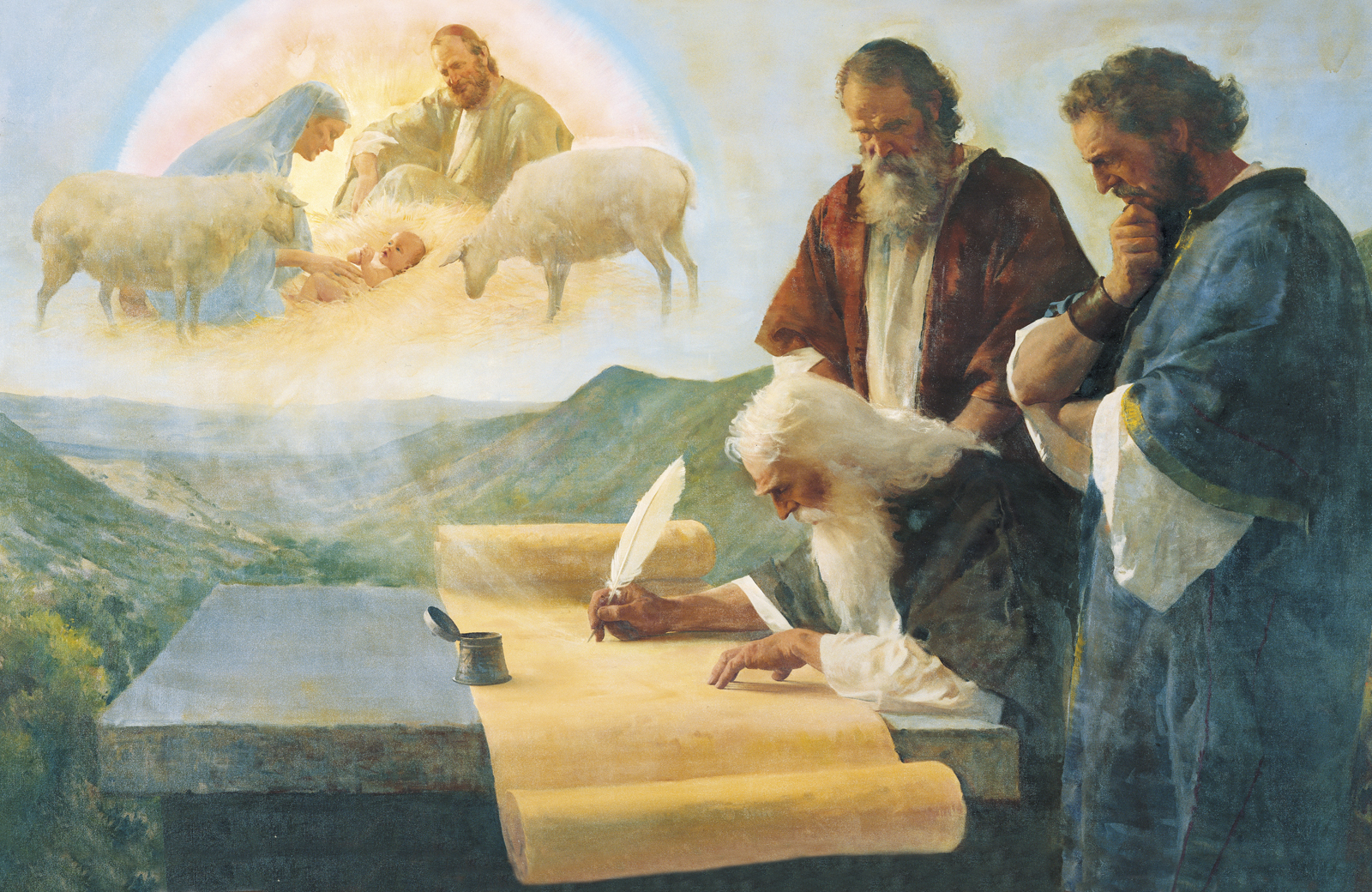Gospel Doctrine Commentary
Lesson No. Nine
Quotes from "Ten Keys to Understanding Isaiah"
Introduction: Elder Bruce R. McConkie was one of the great theologians of the Church. His treatise entitled “Ten Keys to Understanding Isaiah” was published in the Ensign, October, 1973. Here he suggests ten ways to get the most out of our study of Isaiah. I make it a practice to review this article whenever I teach or study Isaiah. I also prepared a synopsis of Elder McConkie’s Ten Keys which I gave to my students. What follows is my synopsis of Elder McConkie's "Ten Keys to Understanding Isaiah":
I feel about Isaiah and his utterances the same way Nephi felt and think that if I expect to go where Nephi and Isaiah have gone, I had better speak their language, think their thoughts, know what they knew, believe, and teach what they believed and taught, and live as they lived.
It just may be that my salvation (and yours, also) does in fact depend upon our ability to understand the writings of Isaiah as fully and truly as Nephi understood them ... Does not that God who is no respecter of persons treat all his children alike? ... [Isaiah's] words can and should shine brightly in the heart of every member of the Church.
The key which opens the door to that flood of light and knowledge that flowed from the pen of that witness of Christ and his laws who in many respects was Israel’s greatest prophet. Here in fact are my ten keys to understanding Isaiah:
- GAIN AN OVER-ALL KNOWLEDGE OF THE PLAN OF SALVATION AND OF GOD'S DEALINGS WITH HIS EARTHLY CHILDREN: The book of Isaiah is not a definitive work that outlines and explains the doctrines of salvation ... it is written to people who already know-among other things-that Jesus is the Lord through whose atoning blood salvation comes.
- LEARN THE POSITION AND DESTINY OF THE HOUSE OF ISRAEL IN THE LORD'S ETERNAL SCHEME OF THINGS: Isaiah’s love and interests center in the house of Israel. His most detailed and extensive prophecies portray the latter-day triumph of Jacob’s seed. He is above all else the prophet of the restoration.
- KNOW THE DOCTRINES ABOUT WHICH ISAIAH CHOSE TO WRITE: His chief doctrinal contributions fall into seven categories: (a) the restoration of the gospel in the latter days through Joseph Smith, (b) the latter-day gathering of Israel and her final triumph and glory, (c) the coming forth of the Book of Mormon…, (d) the apostate conditions of nations in latter days, (e) messianic prophecies relative to the first coming, (f) the second coming of Christ and the millennial reign, and (g) historic data and prophecies for his own day.
- USE THE BOOK OF MORMON: Isaiah's writings, in an even more perfect form than found in our Bible, were preserved on the brass plates, and from this source the Nephite prophets quoted 414 verses and paraphrased at least another 34 ... One-third of the book of Isaiah (32 percent, to be exact) is quoted in the Book of Mormon and about another 3 percent is paraphrased ... The Book of Mormon is the world's greatest commentary on the book of Isaiah.
- USE LATTER-DAY REVELATION: "The Lord by direct revelation has also taken occasion in our day to interpret, approve, clarify, and enlarge upon the writing of Isaiah ... (See D&C 113, 101, and 133) ... It truly takes revelation to understand revelation…
- LEARN HOW THE NEW TESTAMENT INTERPRETS ISAIAH: Isaiah is a prophet's prophet; his words live in the hearts of those who themselves are authoring holy writ. He is quoted at least 57 times in the New Testament.
- STUDY ISAIAH IN ITS OLD TESTAMENT CONTEXT. Other Old Testament prophets preached the same doctrines and held out the same hopes to Israel that were the burden of Isaiah’s own expressions. To know fully what Isaiah meant, it is essential to know what his fellow prophets had to say in like circumstances and on the same matters. Essential to know what his fellow prophets had to say in like circumstances and on the same matters.
- LEARN THE MANNER OF PROPHESYING USED AMOUNG THE JEWS: One of the reasons many of the Nephites did not understand the words of Isaiah was that they ‘know not concerning the manner of prophesying among the Jews' (2 Ne 25:1). And so it is with all Christendom, plus many Latter Day Saints.
- HAVE THE SPIRIT OF PROPHESY: In the final analysis there is no way, absolutely none, to understand any scripture except to have the same spirit of prophecy that rested upon the one who uttered the truth in its original form ... It takes a prophet to understand a prophet, and every faithful member of the Church should have 'the testimony of Jesus’ which 'is the spirit of prophecy’ (Revelation 19:10).
- DEVOTE YOURSELF TO HARD, CONSCIENTIOUS STUDY: Read, ponder, and pray-verse 'by verse, thought by thought, passage by passage, chapter by chapter. As Isaiah himself asks: 'Whom shall he teach knowledge? And whom shall he make to understand doctrine?' His answer: ‘them that are weaned from the milk, and drawn from the breasts. For precept must be upon percept…line upon line…here a little, there a little’ (Isaiah 28:9-10).

